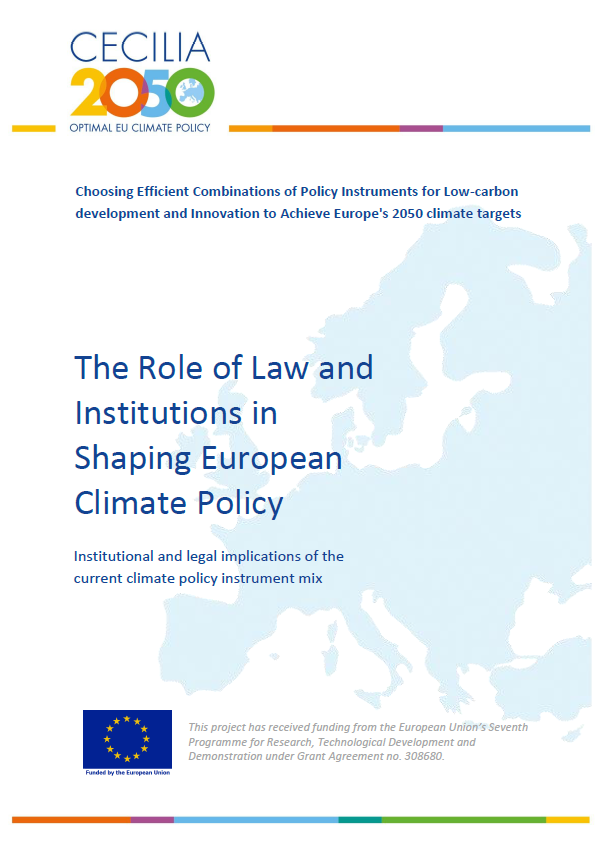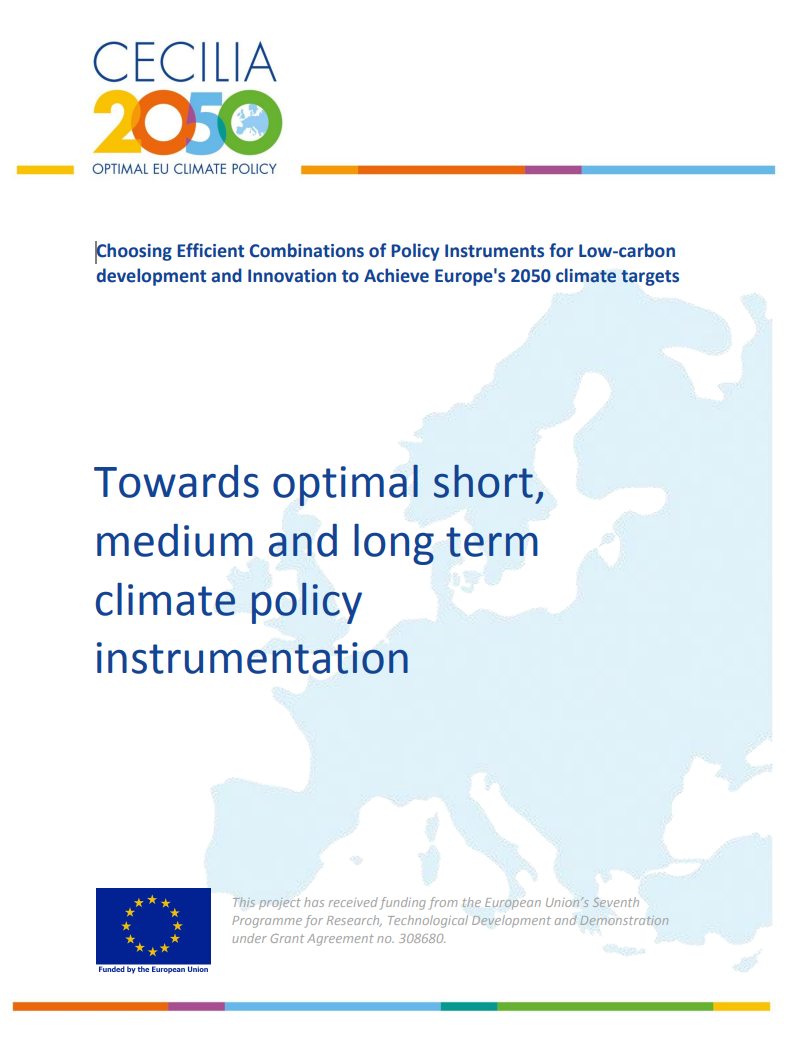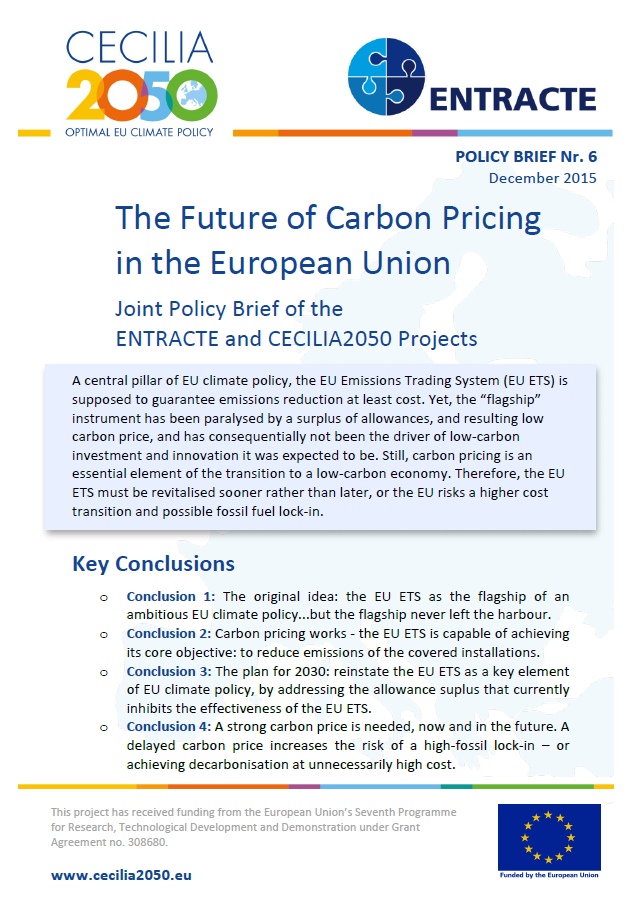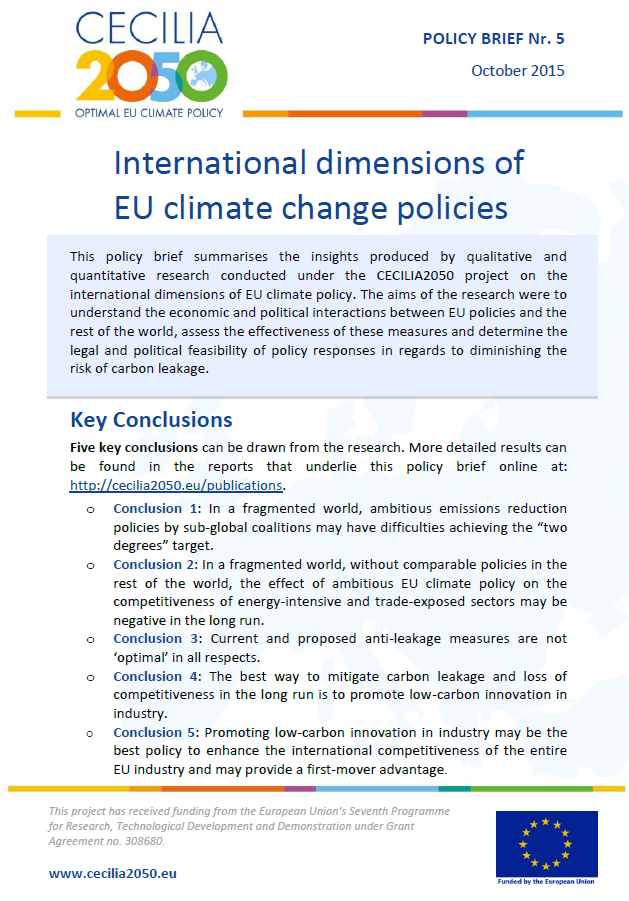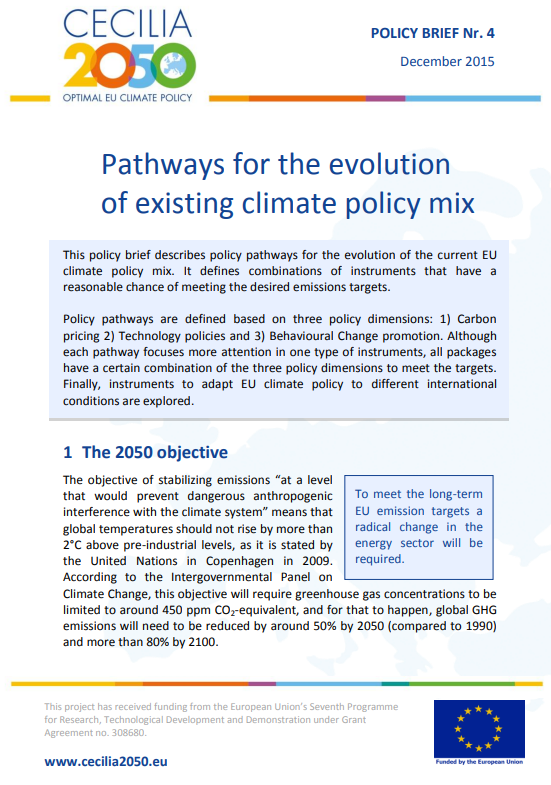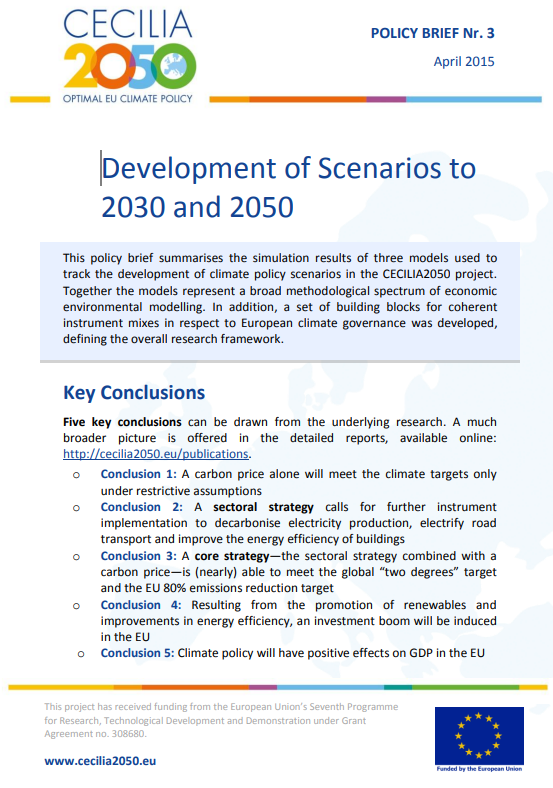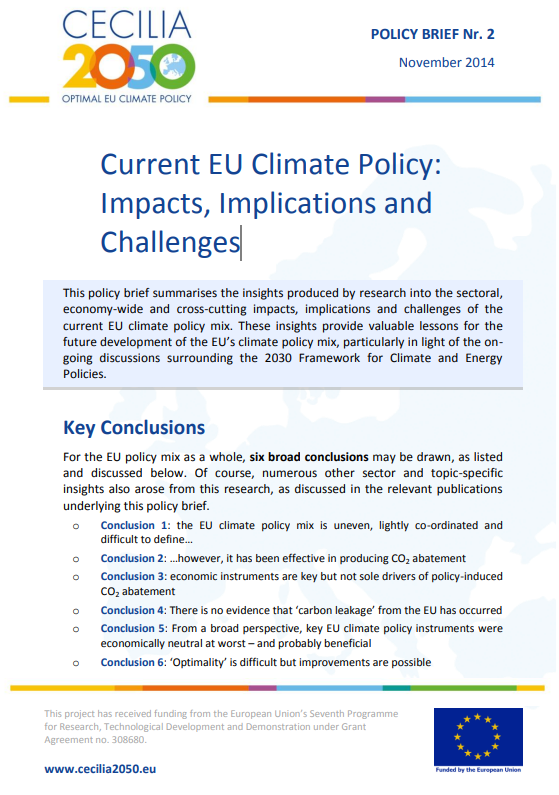The Role of Law and Institutions in Shaping European Climate Policy
Institutional and legal implications of the current climate policy instrument mix
- Publication
- Citation
Mehling et al. 2013. The Role of Law and Institutions in Shaping European Climate Policy. Institutional and legal implications of the current climate policy instrument mix. CECILIA2050 WP2 Deliverable 2.9. Berlin: Ecologic Institute.
This report provides a conceptual, a legal and an institutional overview of the European Union as well as three Member States – Germany, Poland and the United Kingdom – to highlight prominent regulatory approaches. The three Member States were chosen for their contrasting characteristics: they represent different legal systems, different approaches to governance, and different historical attitudes towards certain regulatory approaches. Besides arguably differing in their overall approach to climate policy, they have chosen different instruments with which to accomplish EU climate and energy provisions. Lastly, while the United Kingdom and Germany are "old" Member States, Poland is one of the "new" Member States of the EU.
In light of this diversity among (and evolution of) climate and energy policy approaches in the respective countries, the work package extracts certain trends and patterns. Policymakers can be advised to take these aspects into consideration:
- Economic theory provides useful criteria such as environmental and cost-effectiveness to guide the choice of climate policy instruments. In practice, however, such abstract criteria play a limited role only, and need to be complemented by political, legal and institutional considerations to understand real-life instrument choices.
- Using new regulatory approaches can trigger legal conflicts. The settlement of such conflicts comes at economic and possibly political cost and can delay implementation of a regulation. On the other hand, the resulting court rulings can provide clarity for future regulation as they define the new approaches’ boundaries and options.
- Depending on a government’s administrative divisions, a mix of different entities (e.g., ministries) can be responsible for different parts of a policy – this is particularly true for climate policy, as it is so broad in scope. Such splits in competencies can lead to institutional conflicts that impede the pace and coherence of implementation of national policy goals or EU directives.
- The subnational level is essential for implementing regulations in some Member States.
- Procedural considerations are important - the way regulations are passed (e.g., majority vote instead of unanimity) can impede the political will to bear political or economic costs, e.g. of implementing an EU directive.
